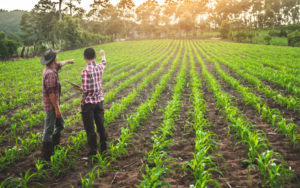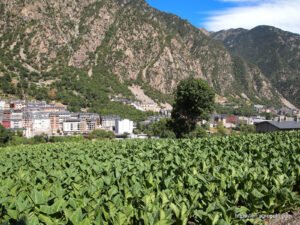Agricultural Education in Brazil: Cultivating a Sustainable Future. Agriculture has been the backbone of Brazil’s economy for centuries, making it one of the world’s leading agricultural producers and exporters. The country’s diverse climate, fertile lands, and extensive natural resources have enabled it to excel in various agricultural sectors. To ensure the continuous growth and sustainability of this vital industry, Brazil has invested significantly in agricultural education and research. This article delves into the history, current state, challenges, and future prospects of agricultural education in Brazil.
Agricultural Education in Brazil: Cultivating a Sustainable Future
Historical Development of Agricultural Education:
Agricultural education in Brazil has deep roots dating back to the 19th century. The country’s first agricultural school, the Escola Agrícola Prática de São Pedro de Alcântara, was established in 1872 in the state of Santa Catarina. Since then, the landscape of agricultural education has evolved significantly, with a focus on fostering innovation, research, and sustainable practices.

Current State of Agricultural Education:
Brazil’s commitment to agricultural education is evident in its vast network of universities, technical institutes, and research centers dedicated to agricultural studies. The country boasts renowned institutions such as the Universidade de São Paulo (USP), Universidade Estadual de Campinas (UNICAMP), and Universidade Federal de Viçosa (UFV), which offer comprehensive agricultural programs.
These institutions provide a diverse range of courses, covering agronomy, animal science, forestry, agricultural engineering, and more. Furthermore, they offer advanced research programs that focus on addressing critical agricultural challenges, including climate change, food security, and sustainable resource management.
The Role of Research and Innovation:
Research and innovation play a pivotal role in Brazil’s agricultural education system. The country has invested heavily in research institutions, such as the Empresa Brasileira de Pesquisa Agropecuária (EMBRAPA), which is at the forefront of agricultural research and development.
EMBRAPA, established in 1973, has been instrumental in advancing agricultural practices, introducing new crop varieties, and developing technologies to enhance productivity and sustainability. Its research has contributed significantly to Brazil’s ability to meet domestic and international demand for agricultural products.

Integration of Sustainable Practices:
As the world grapples with the challenges of climate change and environmental degradation, sustainability has become a central theme in Brazil’s agricultural education. Many universities and research institutions are incorporating sustainability principles into their agricultural programs.
These programs emphasize agroecology, conservation agriculture, and the use of renewable resources. They promote practices that reduce greenhouse gas emissions, preserve biodiversity, and protect water resources. The goal is to create a generation of agricultural professionals who prioritize environmental stewardship while ensuring food security and economic growth.
Challenges and Opportunities:
Despite the progress made in agricultural education, Brazil faces several challenges that must be addressed to ensure the long-term viability of its agricultural sector.
- Sustainable Land Use: As agricultural expansion continues, there is a growing concern about deforestation and land degradation. It is essential to balance agricultural development with the preservation of natural ecosystems and biodiversity.
- Climate Change: Brazil is vulnerable to the impacts of climate change, including more frequent droughts and extreme weather events. Agricultural education must focus on developing climate-resilient practices to mitigate these risks.
- Rural-Urban Divide: There is often a divide between rural and urban populations, leading to a lack of interest in agricultural careers among young people. Efforts are needed to promote agricultural education and attract talented individuals to the sector.
- Inclusive Education: Ensuring that agricultural education reaches all segments of society, including women and marginalized communities, is crucial for creating a diverse and innovative agricultural workforce.

Government Support and Policies:
The Brazilian government recognizes the importance of agricultural education and has implemented various policies to support the sector. Funding is provided for research projects, scholarships, and infrastructure development at agricultural institutions.
The government also offers financial incentives for farmers to adopt sustainable practices, such as conservation agriculture and agroforestry. These policies aim to strike a balance between agricultural growth and environmental conservation.
Conclusion:
Agricultural education in Brazil is a critical component of the country’s journey towards a sustainable and prosperous future. The commitment to research, innovation, and sustainability has positioned Brazil as a global leader in agricultural production and technology.
However, challenges remain, and continuous efforts are needed to address issues such as climate change, land use, and inclusivity. By investing in agricultural education and promoting sustainable practices, Brazil can ensure the long-term viability of its agricultural sector and contribute to global food security and environmental conservation. The cultivation of a well-trained and innovative agricultural workforce is fundamental to building a future where agriculture thrives hand in hand with nature.
See more:
